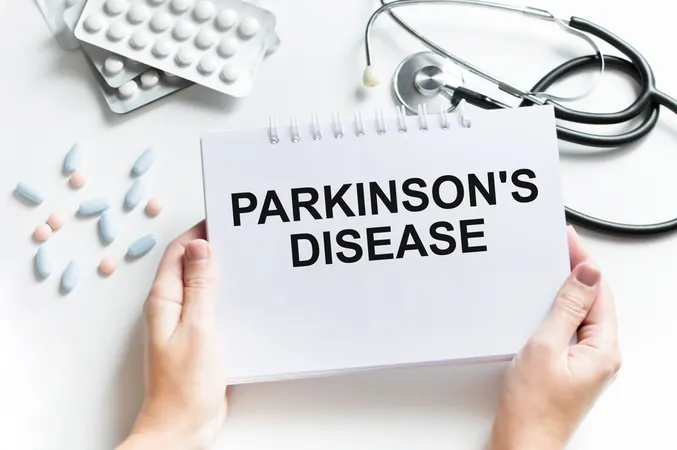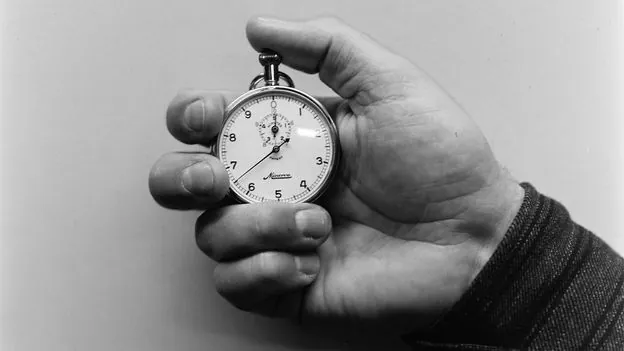
Navigating Parkinson's Disease: A Call to Action This World Parkinson's Day 2025
2025-04-11
Author: Daniel
Seafarers—brave individuals operating in unpredictable and isolated environments—face unique challenges when it comes to managing chronic conditions like Parkinson's disease. With early detection and tailored support crucial, the maritime community is urged to take action.
A Rising Global Concern
Parkinson’s disease is a debilitating neurological condition that interferes with movement, coordination, and mental well-being. Symptoms, including tremors, stiffness, and balance problems, can be devastating. Alarmingly, non-motor symptoms, such as sleep issues and cognitive decline, are also common.
Yet, access to diagnosis and treatment remains elusive, particularly for seafarers who often work far from reliable medical facilities.
Seafarers and Parkinson’s: Unseen Dangers Ahead
Maritime professionals encounter occupational health risks that heighten their vulnerability to conditions like Parkinson’s. Prolonged exposure to harmful substances such as pesticides and exhaust fumes contributes to an increased risk. Alongside age and stress, experienced seafarers, especially those over 50, may face a higher likelihood of developing the disease.
Signs to look for while at sea include: - Hand or arm tremors - Muscle rigidity - Difficulty with movement initiation - Balance and coordination issues These symptoms can easily be dismissed as fatigue or aging, but catching them early can dramatically improve one’s quality of life.
Bridging the Gap to Better Care
In a significant move this year, UCB launched the Parkinson’s Health Equity in R&D Community Leaders Board, aimed at enhancing clinical trial representation for underserved populations, including those in maritime roles.
Partnerships like the Patient Engagement Council for Parkinson’s Research (PECPR) show that collaboration among industry leaders, advocacy groups, and affected individuals can lead to impactful solutions.
Accessing Treatment and Rehabilitation at Sea
Sadly, common Parkinson's treatments, such as levodopa/carbidopa, are priced out of reach for many, especially those from low-income nations where numerous seafarers hail from. Moreover, rehabilitation services, including physiotherapy and speech therapy, are largely unavailable aboard vessels.
Tips for Reducing Parkinson's Risk
While the risk of developing Parkinson's can’t be fully eradicated, the UK Club recommends several preventative measures: - Use Personal Protective Equipment (PPE) and understand chemicals onboard to guard against toxins. - Recognize warning signs and seek medical help if any appear. - Stay active to maintain balance and coordination. - Follow a nutritious diet, rich in fruits, vegetables, and whole grains. - Schedule regular health check-ups to monitor well-being.
Supporting Caregivers
Parkinson’s impacts not just those diagnosed but also their families and caregivers. For seafarers, long contracts can create emotional distance from loved ones, intensifying the psychological challenge. Implementing support groups and mental health initiatives can help alleviate some of these burdens.
Shattering Stigmas, Building Awareness
Those living with Parkinson’s often encounter stigma and misunderstanding, particularly in demanding careers like seafaring. It's crucial to shift perceptions—Parkinson's is not contagious and doesn’t just come with age. With the right support, many can lead fulfilling, productive lives.
Paving the Way to a Healthier Future
This World Parkinson’s Day, let’s shine a light on the significant challenges seafarers face regarding diagnosis and treatment. As we commend the global movement for equitable healthcare, it's time for the maritime industry to actively participate in creating lasting change.






 Brasil (PT)
Brasil (PT)
 Canada (EN)
Canada (EN)
 Chile (ES)
Chile (ES)
 Česko (CS)
Česko (CS)
 대한민국 (KO)
대한민국 (KO)
 España (ES)
España (ES)
 France (FR)
France (FR)
 Hong Kong (EN)
Hong Kong (EN)
 Italia (IT)
Italia (IT)
 日本 (JA)
日本 (JA)
 Magyarország (HU)
Magyarország (HU)
 Norge (NO)
Norge (NO)
 Polska (PL)
Polska (PL)
 Schweiz (DE)
Schweiz (DE)
 Singapore (EN)
Singapore (EN)
 Sverige (SV)
Sverige (SV)
 Suomi (FI)
Suomi (FI)
 Türkiye (TR)
Türkiye (TR)
 الإمارات العربية المتحدة (AR)
الإمارات العربية المتحدة (AR)